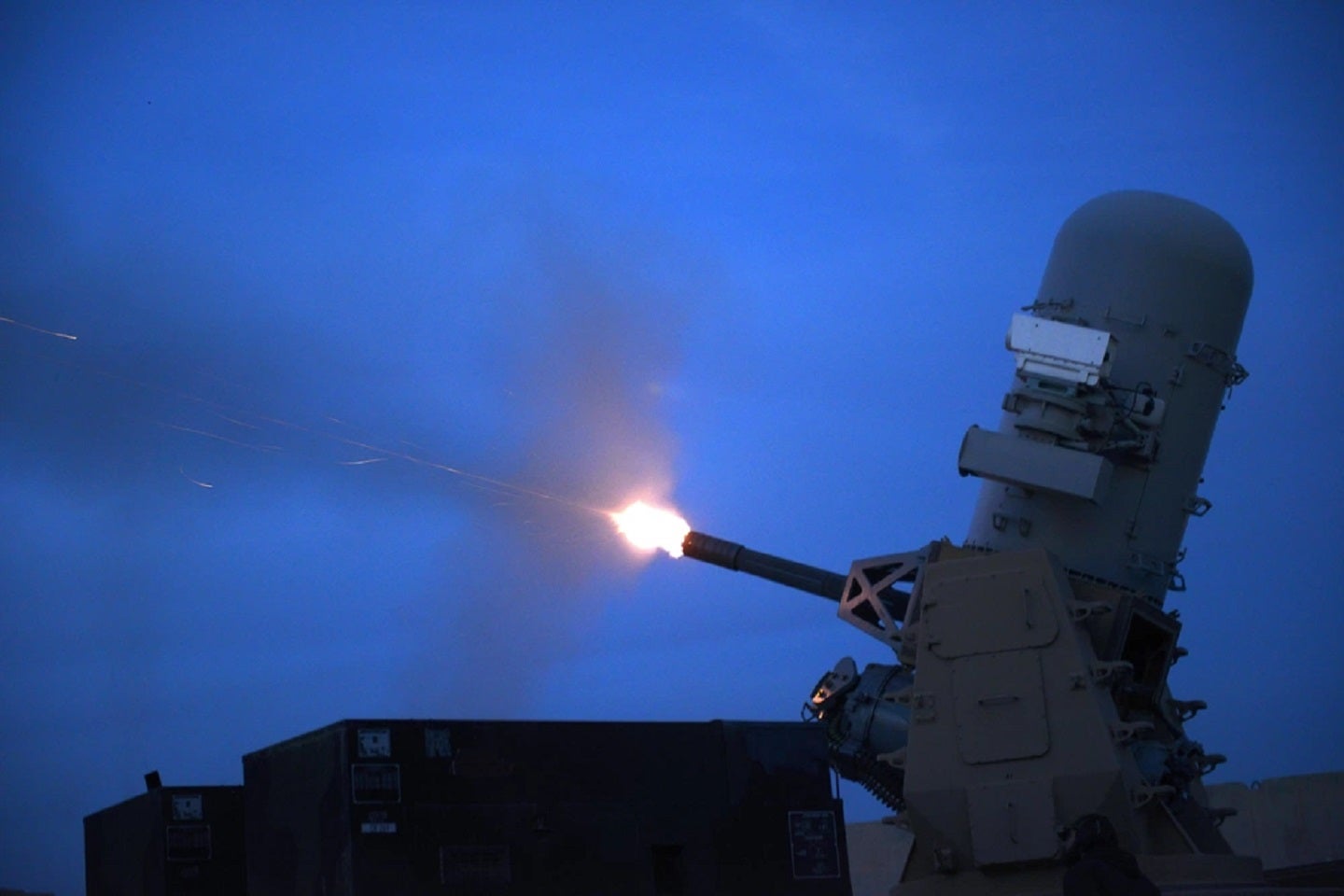
Nations are feeling the pinch of the current security situation across the world, and the United Arab Emirates (UAE) is no exception. Part of the Gulf country’s plan to look globally to shore up its defence has led to greater global industry collaboration, which has been largely executed by leveraging the country’s state-owned defence and security conglomerate: EDGE Group.
EDGE Group’s most recent partnership confirms this. It was announced that EDGE entity HALCON, a regional leader in the design and production of guided weapon systems, has partnered with Swiss-based Rheinmetall Air Defence (RAD), a subsidiary of Rheinmetall and a leading manufacturer of air defence and anti-aircraft systems on 28 February.
The partnership will see RAD develop and qualify the truck mounted Oerlikon Multi Sensor Unit (MSU). It will work in conjunction with the UAE’s own HALCON SkyKnight counter-rocket, artillery, and mortar (C-RAM) missile system.
This modular integration will see the Skynex system adapted to the C-RAM which is specifically designed to counter hard-cased targets such as precision guided munitions and large artillery shells.
The MSU itself is a remote controlled, rapidly deployable sensor unit. It features a 4D active electronically scanned array search radar, covering 360° and is capable of automatically classifying detected targets and handing the generated tracks over to the most suitable gun or missile launcher autonomously or by the push of a button.
The need to bolster UAE air defences
Marco Parisi, sales director at Rheinmetall Air Defence, stated that this partnership “shows both companies’ commitment to providing the UAE with leading edge air defence systems. The Oerlikon Skynex air defence system paired with HALCON’s SkyKnight Missile is the ideal solution for the protection of UAE’s most vital infrastructure.”
This modular air defence system will be a more effective solution to the regional strife the UAE faces in the Gulf. The UAE’s total forecasted investment of $129.3bn over the period 2024-28 reflects the country’s plans to equip itself with advanced defence equipment.
The purpose of this expenditure is primarily to deter Iran from taking an aggressive posture and to fortify its national security against strikes from the Houthis, an Iran-backed Yemeni insurgent group.
It is reasonable to believe that the partnership with RAD goes some way to providing the UAE with newly enhanced air defence capabilities to prevent Iranian/Houthi missile strikes against the country and its infrastructure.
The growth of modularity
The current security situation sees modularity standardise weapon systems, establishing greater defence industry integration the world over, as seen with the UAE-Swiss partnership.
Modularity has become a way to cut costs for defence equipment, while countries seek to narrow their defence spending in on the latest and greatest weapon systems.
The UAE, like the rest of the world, has seen inflation hike up to 5.20% according to GlobalData’s macroeconomic analysis of the country’s economy, and all the while the UAE is expected to see a cumulative defence investment throughout the 2024-28 period.
UAE defence spending goes toward modernised equipment, as opposed to spare parts and affordable equipment to bolster the count of their platforms and weapon systems.
Akash Pratim Debbarma, aerospace and defence analyst at GlobalData, comments: “The UAE’s efforts to develop its domestic defense capabilities encourages foreign defense companies to start joint ventures with domestic companies”.
The UAE’s globalised approach to bolstering its defence industry demonstrates a greater need for modularity to allow for flexible adaptation of their modern systems with foreign components like the MSU.




